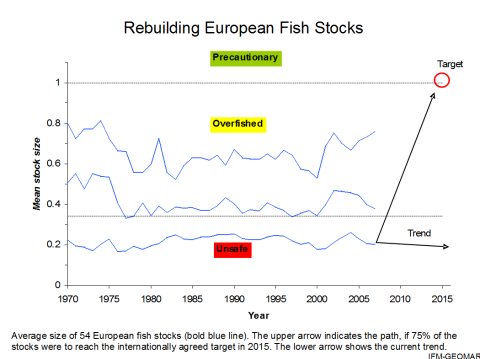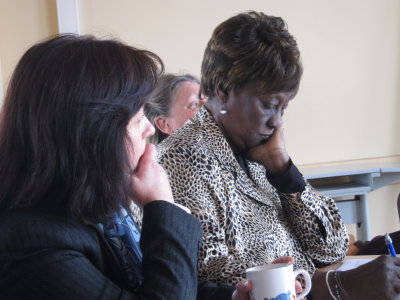Highlights from the workshop - the opening
by Prof. Stella Williams

Cornelia E Nauen, President of Mundus maris, welcomed the participants and opened the workshop in the pleasant premises of the Institute of Sociology at the ULB. Setting the scene for the discussion, she recalled that Mundus maris at its core was mobilising the sciences and arts in a creative tension to enable a better appreciation of the world around us. Science tells us a lot about how far humanity has overshot the budget of what nature can produce and regenerate in a year. Last year, ecological overshoot day was 22 August.
That means the resources we consumed during the remainder of 2012 were borrowed from 2013. The land and the sea which enable our civilisation to exist are overexploited in many parts of the globe with production and consumption patterns unsustainable.
As Charles Hopkins, UNESCO Chair for “Reorienting Teacher Education to Address Sustainability”, York University, Toronto, Canada, had noted in an earlier workshop at the EADI Conference in 2011, that education concepts in many industrialised countries were not leading us into the transition towards living in peace with one another and our planet. The overconsumption in these countries gave many children and youth a distorted picture. Education in so-called developing countries, which were more economical in their use of resources but had other shortcomings, could provide valuable learning ground while at the same time benefiting from more exchange with school systems elsewhere.
In an interdependent world heading towards an unpredictable climate regime of well above 2 oC new thinking and new approaches to eduation were required to cope with the unknown ahead. How to help prepare the next generations to accommodate an additional 2 billion of humans on the planet, while providing suitable living conditions for all, humans and other organisms? How to manage the restoration of degraded land and marine ecosystems to do that? How to do that by reducing energy consumption by 80% so that the climate system would not go entirely out of kilter? How to develop the technical knowledge and the all-important social skills required to achieve these major societal changes in a non-violent manner? The present workshop was intended to create a conversation space for people approaching the issues from very different angles as a contribution to this huge challenge. From the perspective of Mundus maris, it was expected to come out with robust orientations as to where efforts on eduation for sustainability would be most effectively focused so has to support change in that direction.
Paul Jacobs of SEDIF, organiser of Campus Plein Sud at the ULB, walked the participants through a review of concepts on development that had guided research and activism

since the late 1950s. With decolonisation came the notion of development, but based on industrial production and other imported models, which quickly turned out to be inadequate, if not deleterious to the former colonies.
The 1972 report of the Club of Rome "The Limits of Growth" made lots of waves, not the least by calling into question the development model of the industrial countries and its effects on global resources and developing countries. Fifteen years later, the Brundtland Report "Our Common Future" of 1987 paved the way for the Rio Earth Summit in 1992 which gave rise to the Convention on Biological Diversity, until recently the international treaty most countries in the world had ratified or adhered to.
After the end of the bipolar world in the 1990s, there was also a stronger movement to seek cooperation with developing countries rather than for them. The development community was also questioning itself and the models underlying the development discourse and practice. Approaches to the global and regional trade regimes and the increasingly global reach of transnationally operating companies continued raising new challenges on how to pursue objectives of social justice, rights to dignified lives and protection of the natural environment on which particularly economically poor people depend overproportionately.
In the new century, the political and economic stage is becoming increasingly multipolar and interdependent, thus forcing new reflections as to what development and more specifically sustainable development might mean and how international cooperation and solidarity can help to address the negative sides of globalisation more effectively. More than enough food for critical thought for this and other workshops to come.









